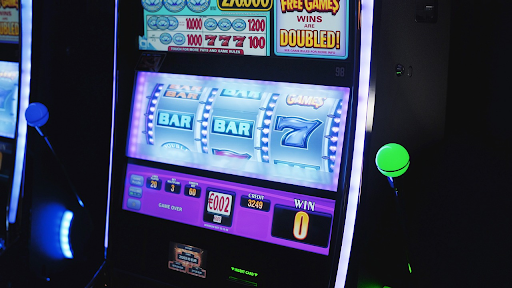Browser games have become hugely popular because they’re easy to play, quick to enjoy, and packed with rewarding features like leveling up or earning visual upgrades. These simple mechanics keep players coming back.
But when you move from casual games to online casinos, rewards take on a different meaning. Instead of just fun, you’re dealing with systems built on fairness, rules, and real money. Understanding the difference helps you see how games are designed, and what kind of value you’re really getting.
You don’t need to be a math expert to enjoy either type. But knowing how rewards work, whether it’s coins in a game or cash in a casino, makes you a smarter player.
How Real Payout Models Shape the Online Casino Experience
When casual players step into the realm of online casinos, they often expect similar reward loops to those found in free games. However, the core difference lies in regulation and financial stakes. Games that deal with real money must be audited and transparent, particularly those that are under the UK Gambling Commission or Malta Gaming Authority, which enforce strict and fair standards.
Understanding how games reward players is essential, especially when comparing casual titles to real-money platforms. As CasinoBeats payout insights report, top-rated UK online casinos distinguish themselves through high RTP games, fast and fee-free withdrawals, and a strong variety of trusted titles like single-deck blackjack or European roulette. These platforms don’t just offer the potential for higher returns, they also emphasize regulatory oversight and payout transparency.
By contrast, browser-based games are often optimized for user retention, using variable reward schedules and dopamine triggers. There’s no payout regulation, just player engagement. This makes understanding real payout systems all the more important for players who move between casual and casino environments.
Virtual Rewards vs Real-Money Returns
In casual browser games, rewards are symbolic. They’re meant to create satisfaction and incentivize continued play. Players might earn in-game currency, access new levels, or receive digital badges. These rewards have no financial value, but their emotional impact of games keeps players invested.
In regulated online casinos, the term “reward” takes on a different weight. Every payout must reflect a statistically verified model, and each game must disclose its RTP (Return to Player). An RTP of 97% means that over time, players can expect £97 back for every £100 wagered, though this is calculated over thousands of spins, not single sessions.
It’s this structure that ensures fairness in casino environments. Unlike casual games, you’re not just being nudged along with unpredictable perks, you’re participating in a model governed by probability, publicly disclosed odds, and industry oversight.
Why RTP and Game Design Both Matter
RTP, or Return to Player, tells you how much a casino game pays back over time. A higher RTP means better long-term value, which is why experienced players look for it. Some games return 97–98% of what you put in, while others are much lower. Knowing this helps you choose smarter.
Browser games don’t have RTP because they’re not about money, they’re designed purely for fun. Their rewards keep you engaged, not because of fairness, but because they’re built to keep you playing.
Casino games, on the other hand, must balance entertainment with fairness. Developers can’t just change rewards freely, payout rates are set and legally regulated. So while these games may feel more structured, they’re built to be transparent, making it easier for players to know what to expect.
Behind Every Game Is a System
Every game, whether it offers cosmetic rewards or real cash payouts, is built on a system. Understanding how those systems work and what drives them gives players a clearer edge. Not all games are equal, and not every reward is worth the chase. But when you grasp the mechanics – what’s regulated, what’s random, and what’s transparent, you’re in a better position to choose how you play.
Browser games thrive on creativity and entertainment, but real-money platforms require a closer look. Once you can tell the difference, you’ll enjoy every type of game with greater confidence and control.






